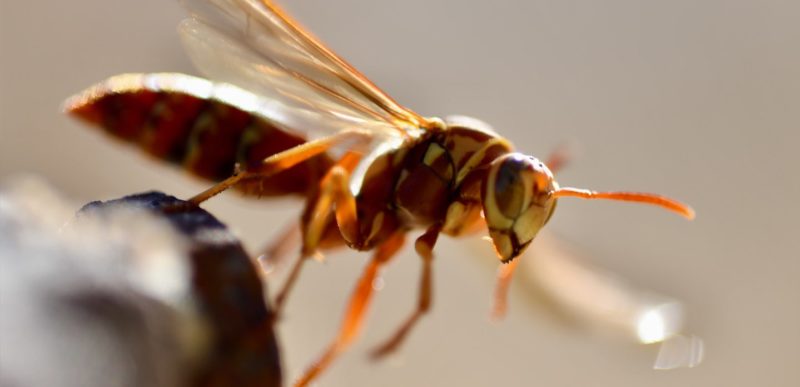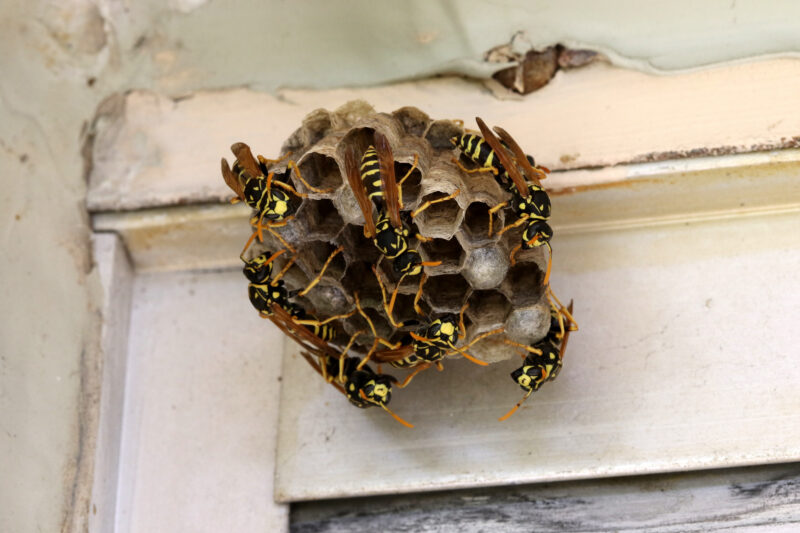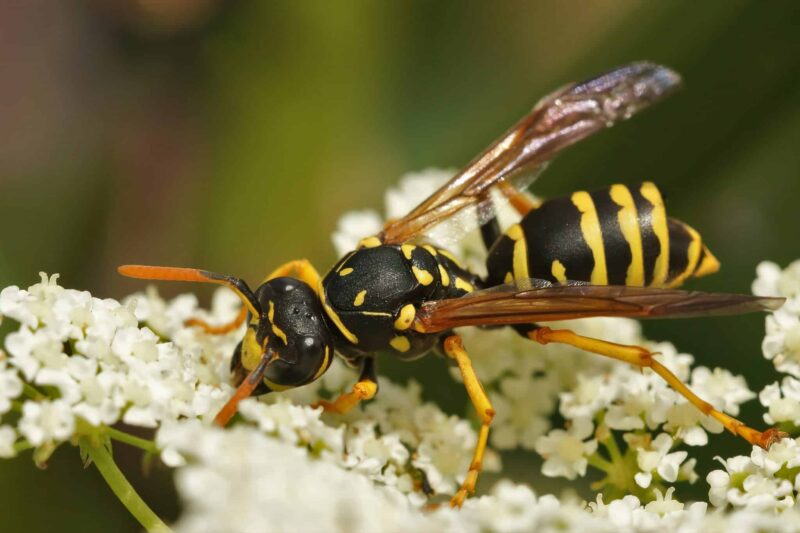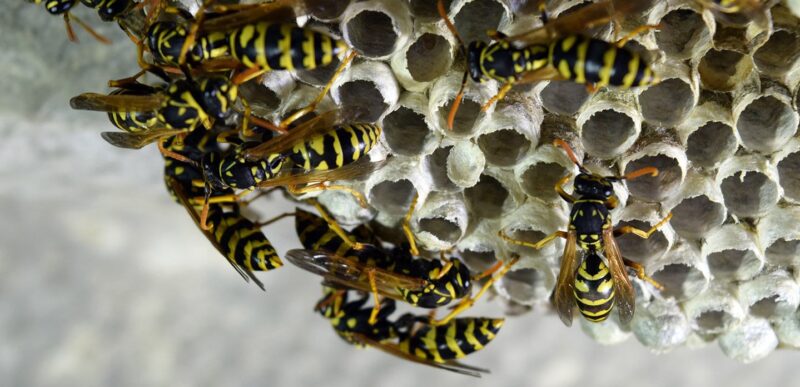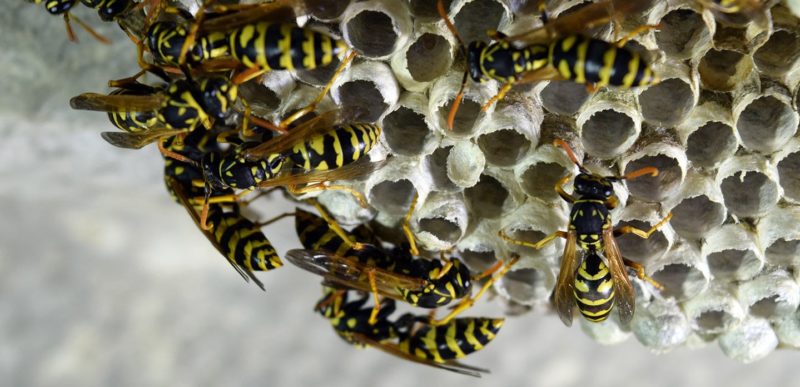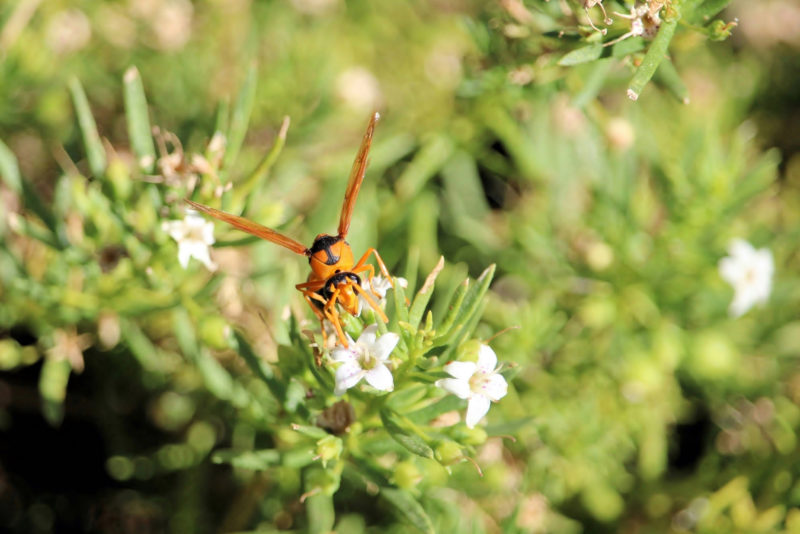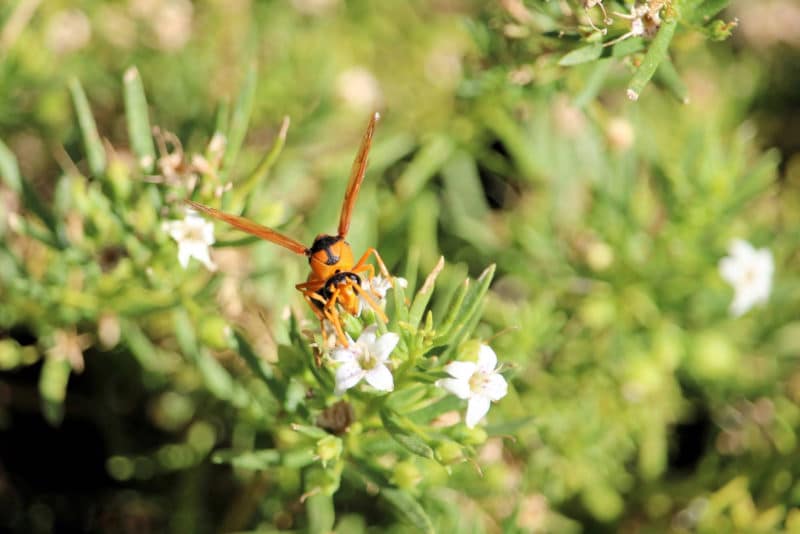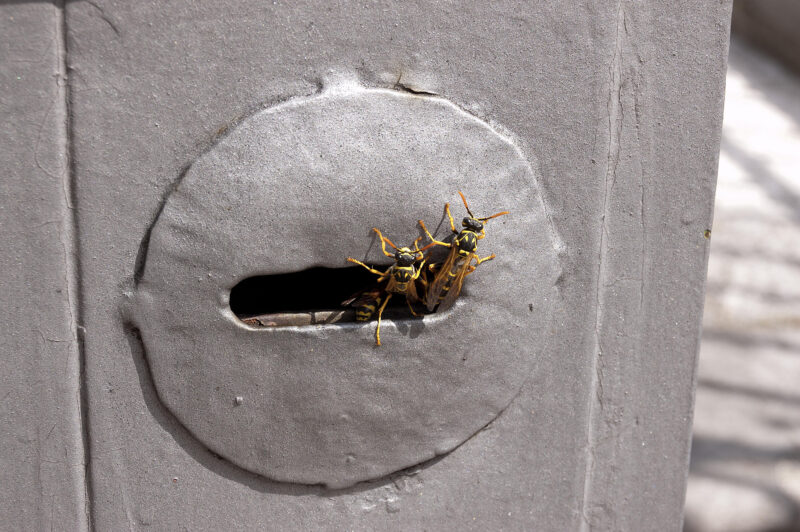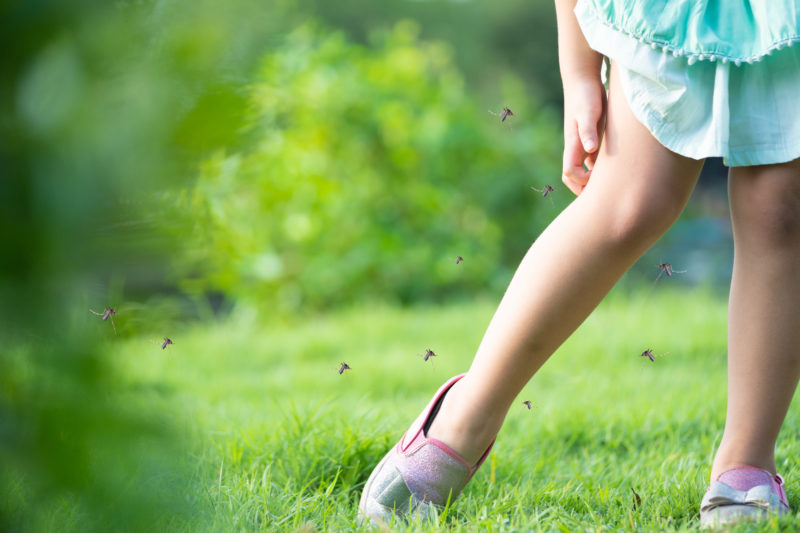European Wasps
The European wasp, Vespula germanica, is an established pest in Australia. This non-native wasp was first found in Australia in 1959 in Tasmania. By 1978 they were also known in Victoria, South Australia, New South Wales and Western Australia, and are now firmly established in the Sydney area. The native range of the species is Europe, North Africa and temperate Asia but it has since spread to North America, South America, South Africa, New Zealand and Australia. Flick Pest Control offers effective pest control services to help eliminate European wasp infestations and prevent future invasions.
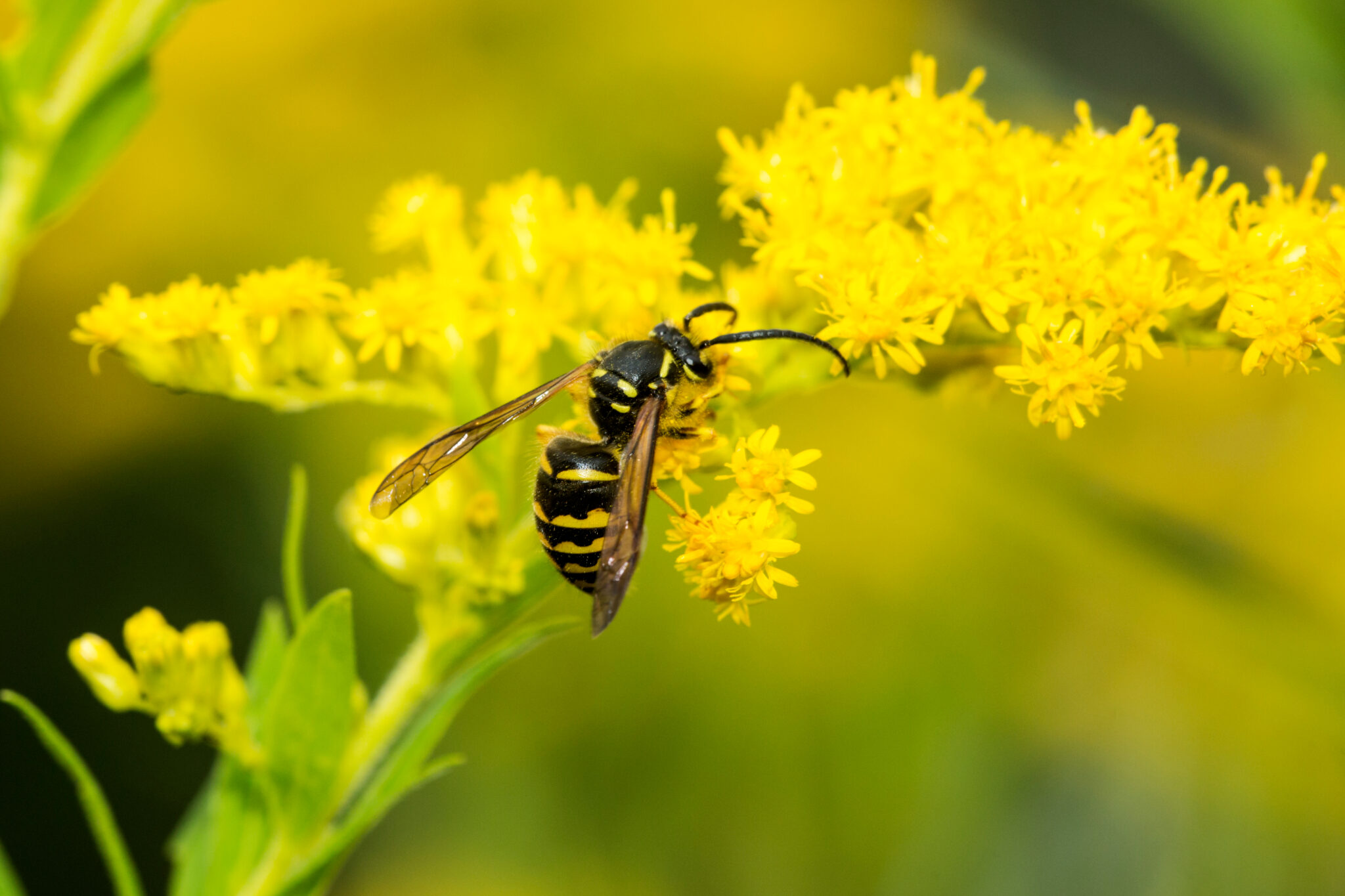
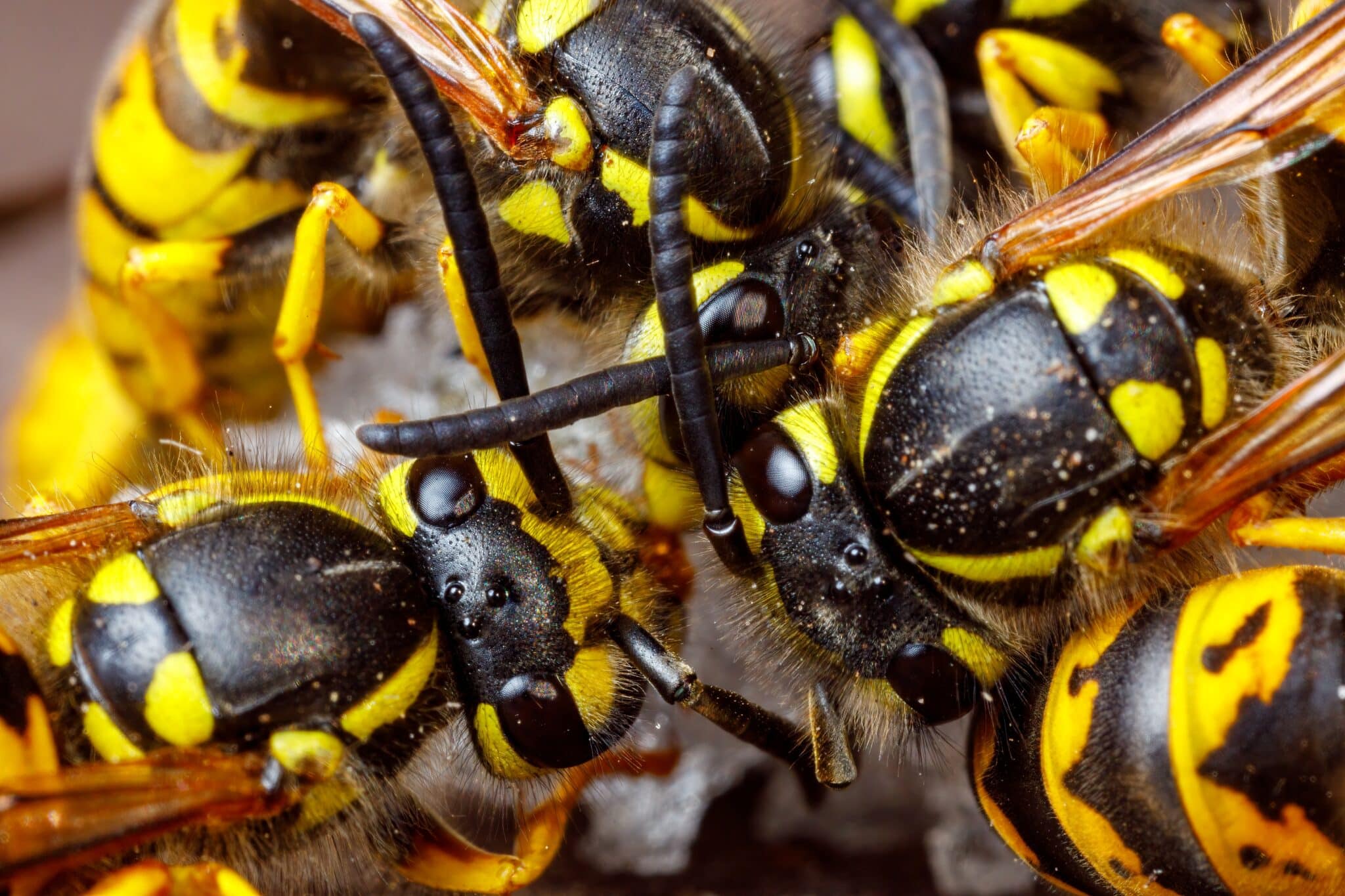
How to Identify European Wasps
European wasps are a stout wasp with a bright yellow and black banded abdomen, and a pair of black spots on each yellow band. They have two pairs of clear wings with the first pair larger. They have black antennae and fly with their legs held close to the body.
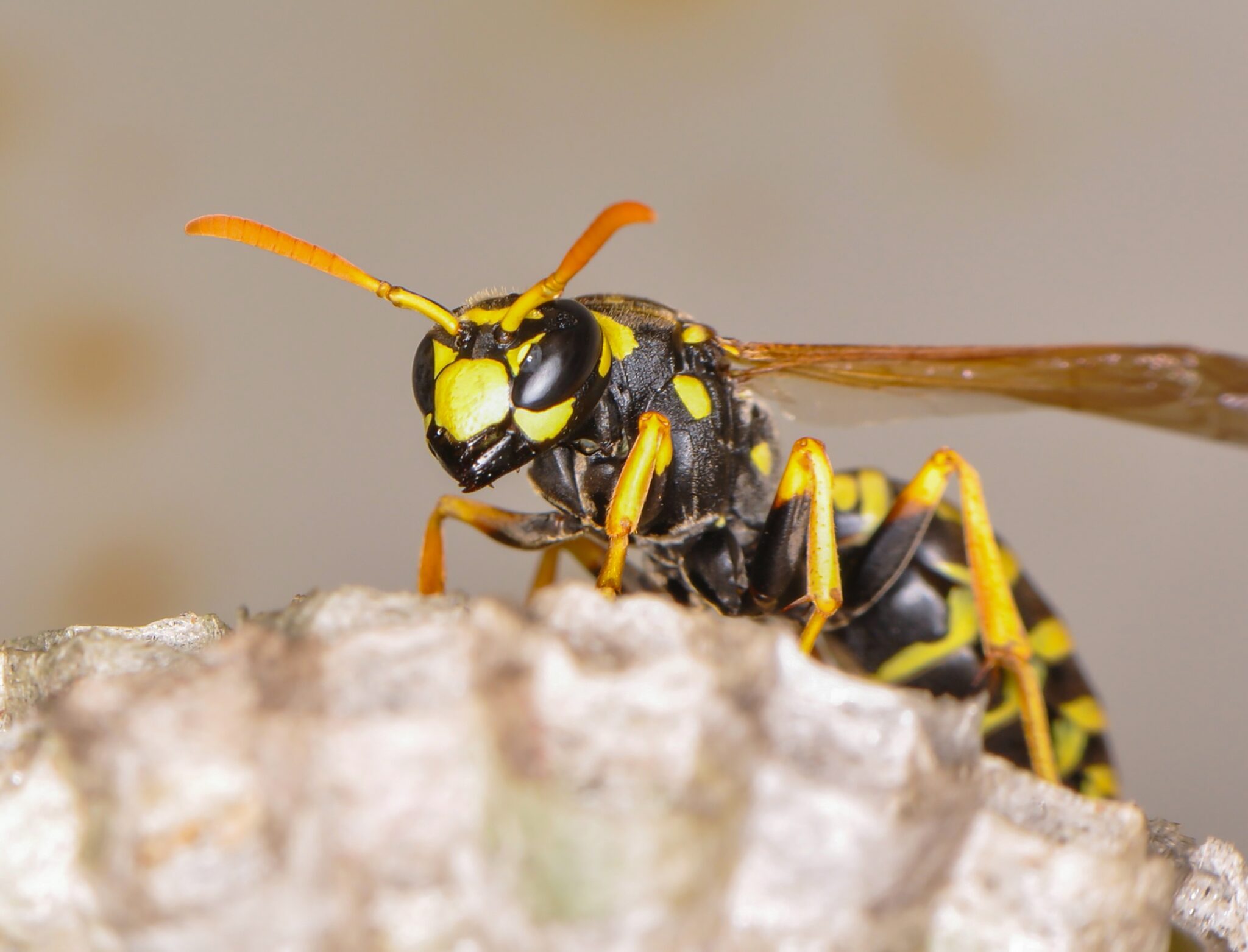
Preventative Measures for European Wasps
To prevent European Wasp activity, there are several key measures that should be followed. Firstly, it is important to avoid leaving food or drink unattended, especially sweet and sugary items that attract these insects. It is also crucial to pick up fallen fruit from trees to prevent them from feeding on it. Open drink cans should not be left unattended, as European Wasps are attracted to sugary drinks. Additionally, any holes or gaps in building walls should be sealed to prevent them from building nests inside structures.
Furthermore, it is important to never disturb a European Wasp nest. If a nest is found on your property, it is best to contact a professional pest control service to handle the removal and relocation of the nest. Disturbing a nest can lead to aggressive behaviour from the wasps and can be dangerous.
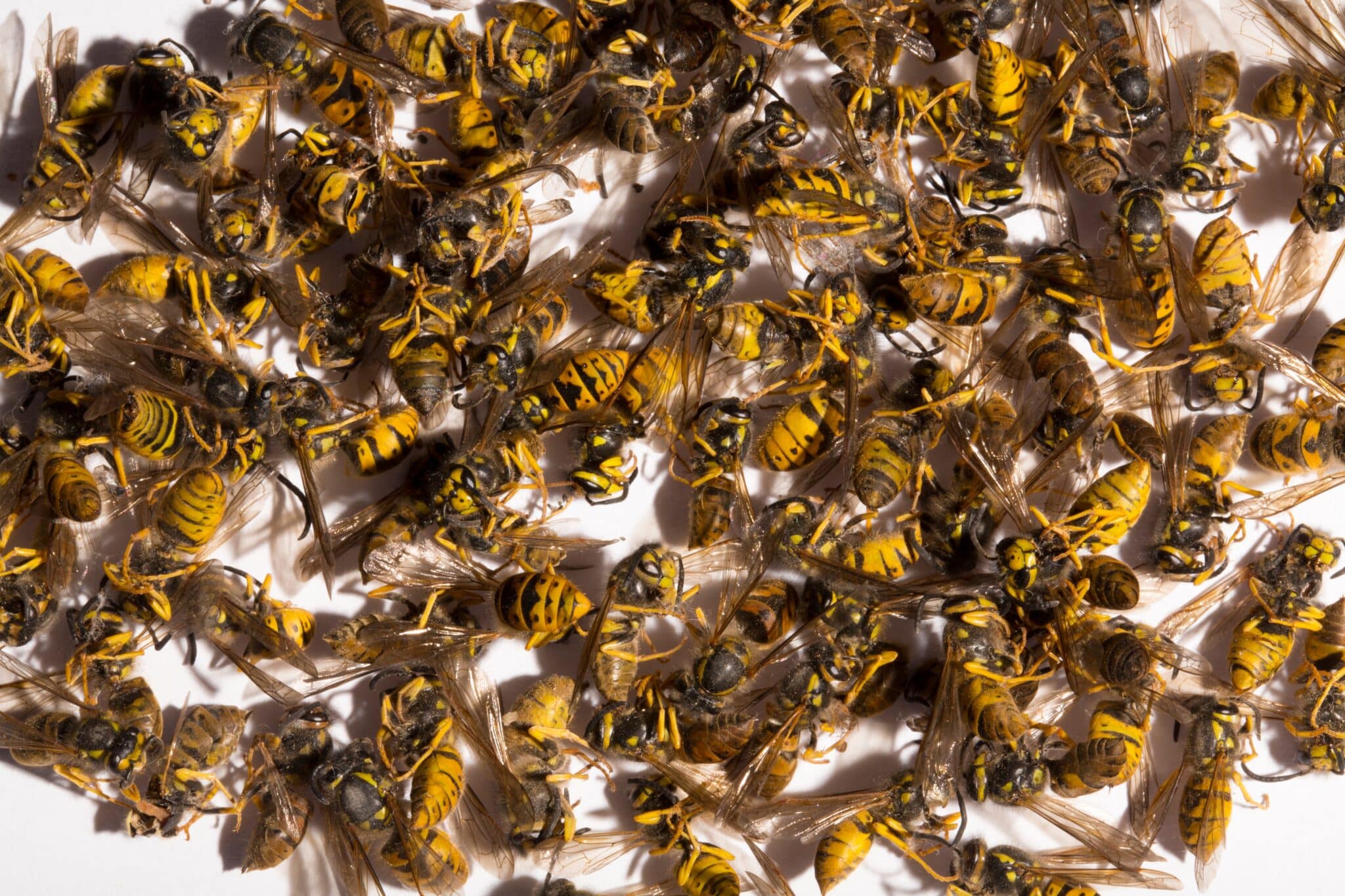
How European Wasps Are Treated
European wasps are treated through a combination of nest destruction and targeted insecticide application. When a European wasp infestation is identified, Flick’s professional technicians will locate and destroy the nest to eliminate the source of the problem. This is typically done using specialised equipment and techniques to ensure the safety of the surrounding area.
In addition to nest destruction, targeted insecticides may be applied to effectively control and eliminate any remaining wasps. These insecticides are specifically formulated to target European wasps while minimising impact on other beneficial insects and the environment.
Flick Pest Control has the knowledge and experience to effectively and safely manage European wasp infestations, minimising the risk to people and pets while effectively controlling the problem. Attempting to manage the problem without the proper expertise and equipment can be dangerous, which is why it is important to contact Flick Pest Control if you encounter a European wasp infestation.
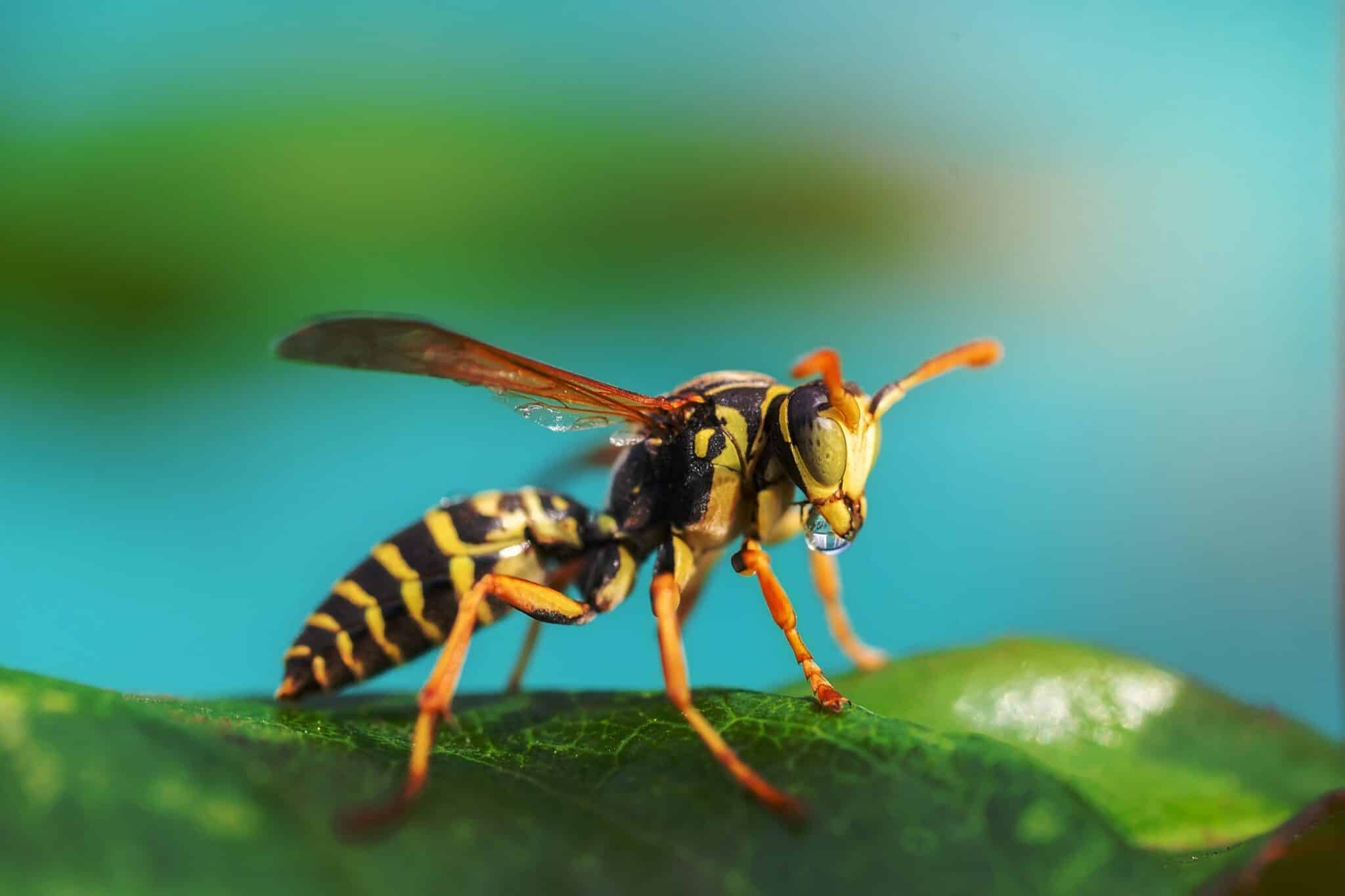
Risks Associated with European Wasps
European wasps are more aggressive than bees and will attack when their nests are disturbed. Unlike bees, wasps can sting more than once, and do not die after stinging.The sting causes a burning pain and swelling. If stings are multiple, a more severe systemic reaction may occur. In some individuals, wasp, bee and ant stings can cause an allergic reaction (anaphylaxis), but this is relatively uncommon. Effective treatment is available, which involves known bee/ant/wasp sting allergy sufferers carrying a special kit when outdoors. Immunotherapy or desensitisation is also available, and can reduce the severity of the allergy. Seven deaths over a twenty-year period attributed to wasp stings have been recorded in Australia, mainly amongst known allergy sufferers who were not carrying their preventative medicine with them. A cold pack may be used to relieve the pain of the sting. If there is evidence of a more severe reaction or the sting victim is known to be allergic to wasp and bee venom, medical attention should be sought immediately.
The economic impact from these wasps on primary industries within beekeeping, forestry and horticulture is significant. They have the potential to disrupt native ecosystems by taking food sources away from native species and disturbing the natural food chain. European wasps are known to be territorial therefore place a negative impact on human health.
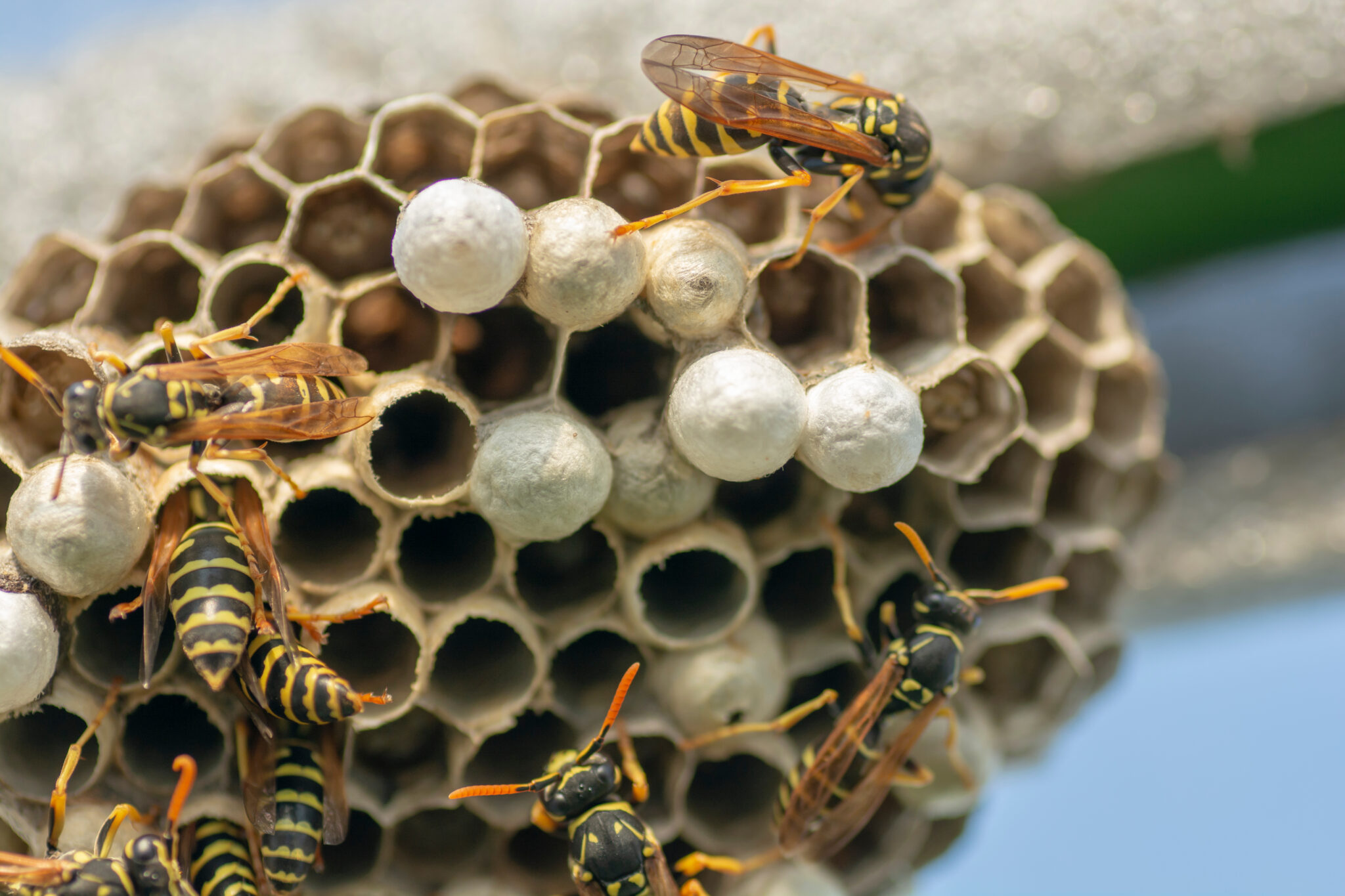
European Wasp Habitat
European wasps are found in large communal nests, normally only visible as a small entrance hole. They are normally built either underground or in cavities in walls, ceilings, logs or trees. The nests are made from chewed wood fibre and can be found in ceilings, wall cavities, logs, tree trunks and soil.
European wasp colonies are started in spring by a single fertilised queen, which lays an egg in a number of cells in the nest. These hatch into grub-like larvae and are tended by the queen for a number of weeks. They become the first batch of workers that take over nest construction and rearing of the larvae while the queen concentrates on laying eggs. The nest grows throughout the summer until a batch of males and new queens are hatched in the autumn. These mate and fly off to start new nests.
Towards the end of summer, several larger cells are constructed, in which a new generation of queens develop. Males also develop, and mate with the queens outside the nest before they die.
In late autumn the original queen dies, and the new queens disperse to find suitable over-wintering sites before forming a new nest in spring.
In Europe the old nest then disintegrates and the dispersed queens hibernate in sheltered spots beneath loose tree bark or in roofs. A hibernating queen holds on to the substrate with her jaws, and tucks her legs, wings and antennae beneath her, remaining immobile for up to six months.
It is significant that in the warmer climate of Australia, one of the new queens may stay in the nest and begin laying eggs, without the usual over-wintering period being observed. Over several seasons, this can result in giant and potentially dangerous nests of over 100,000 wasps.
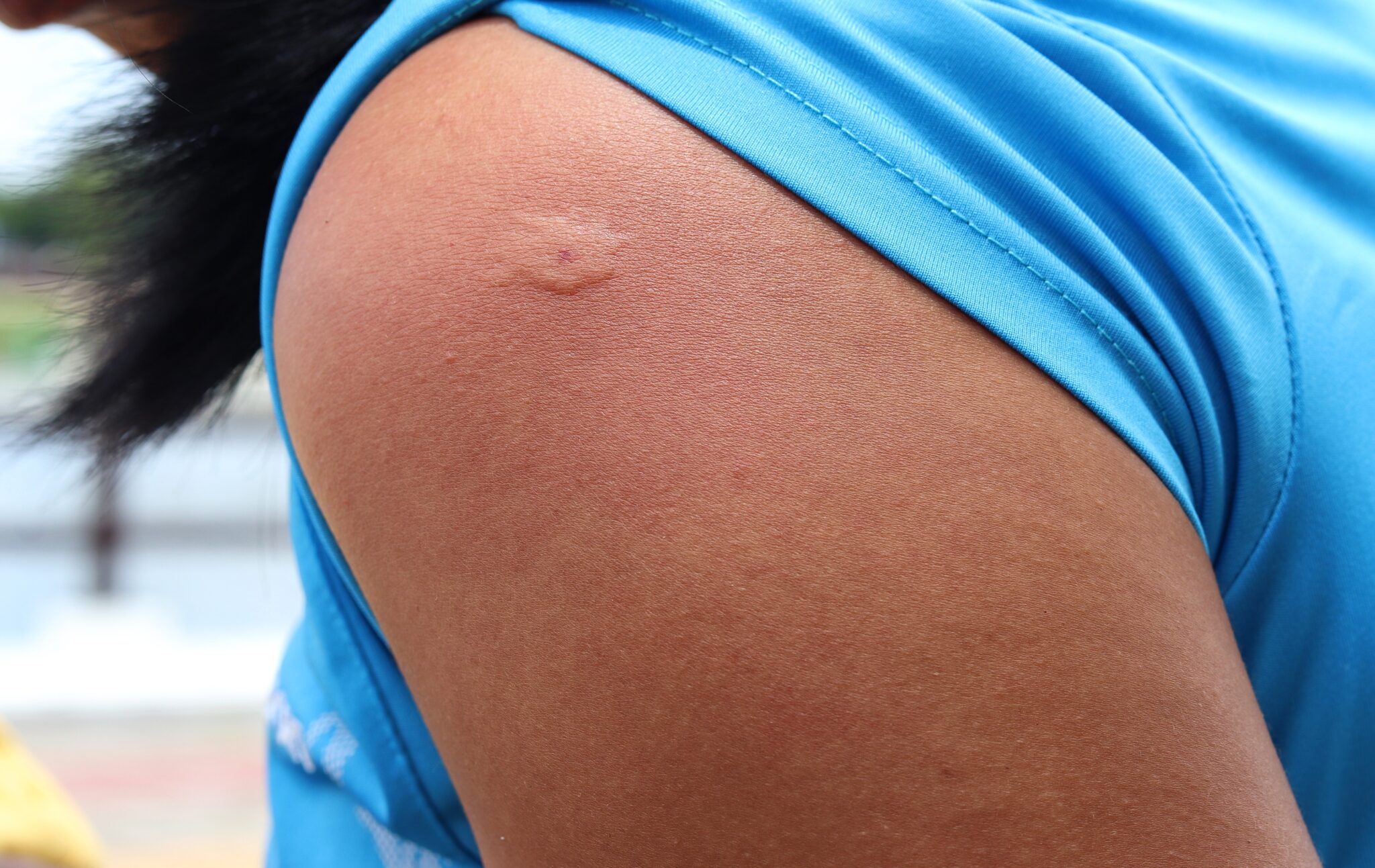
European Wasp Sting First Aid
If stung by a European Wasp, it is important to administer first aid immediately. If the individual has a known severe allergy to wasp stings and has been prescribed a self-injectable adrenaline (epinephrine) device, it should be administered as soon as possible. After administering the adrenaline, it is important to call for emergency medical help.
Applying a pressure immobilisation bandage is also recommended to help slow the spread of venom through the body. This involves wrapping the affected limb with a firm bandage and immobilising it with a splint.
If there are signs of inflammation, infection, or if the symptoms are severe, seeking medical advice is crucial. Anaphylaxis is a potential risk of a European Wasp sting, and immediate medical attention is essential in such cases. Symptoms of an allergic reaction to wasp venom may include swelling, itching, hives, difficulty breathing, and a drop in blood pressure. If any of these symptoms occur, call for an ambulance and administer the adrenaline if available.
Commercial Pest Solutions
Integrated European Wasp Solutions
It is essential for businesses to prioritise the health and safety of their employees and customers. European Wasps not only pose a health risk but also damage property and reputation. Flick’s professional commercial pest control services provide tailored solutions to prevent and eliminate any pest infestations, ensuring a clean and hygienic environment for everyone. Our regular inspections and treatments help to maintain a pest-free workplace and protect your business from potential pest related damage. Trusting in Flick’s commercial pest control solutions is a smart investment in the long-term success and reputation of any business.
I found European Wasps! Help!
Don't worry, we're here to help. Follow these steps to stay safe until help arrives!
Call a Professional
Call Flick Pest Control Immediately.
If you encounter european wasps in your home or business, you may be dealing with an infestation. Don’t wait until the problem gets out of hand – we can help protect your property and ensure the health and safety of those around you. Fill out the form below or call 1300 270 019 today.
Leave the European Wasps Alone
Trust Flick Pest Control to handle the situation
Our pest control technicians have the knowledge, experience, and tools necessary to effectively and safely eliminate pests from your home or business. Attempting to treat european wasps on your own can be risky and may not fully eradicate the problem.
We will and ensure a safe and effective outcome for your property.
There May be More!
Don’t Go Looking Around!
Flick’s pest control experts will perform a thorough inspection of the property to identify any areas where european wasps may be present, followed by the development of a treatment plan tailored to the specific needs of the situation. By implementing effective pest control strategies, we can help ensure a pest-free environment for you.

